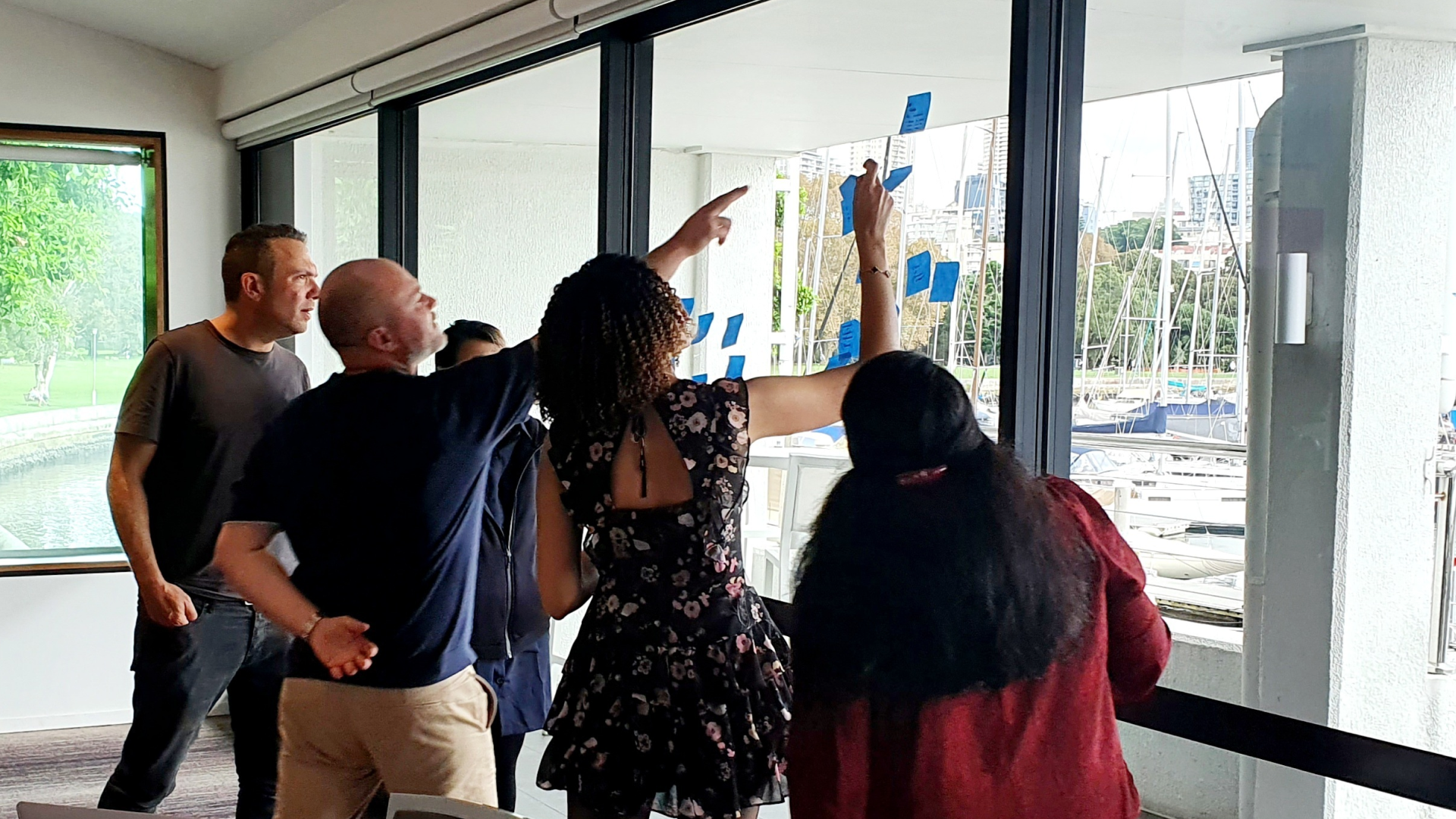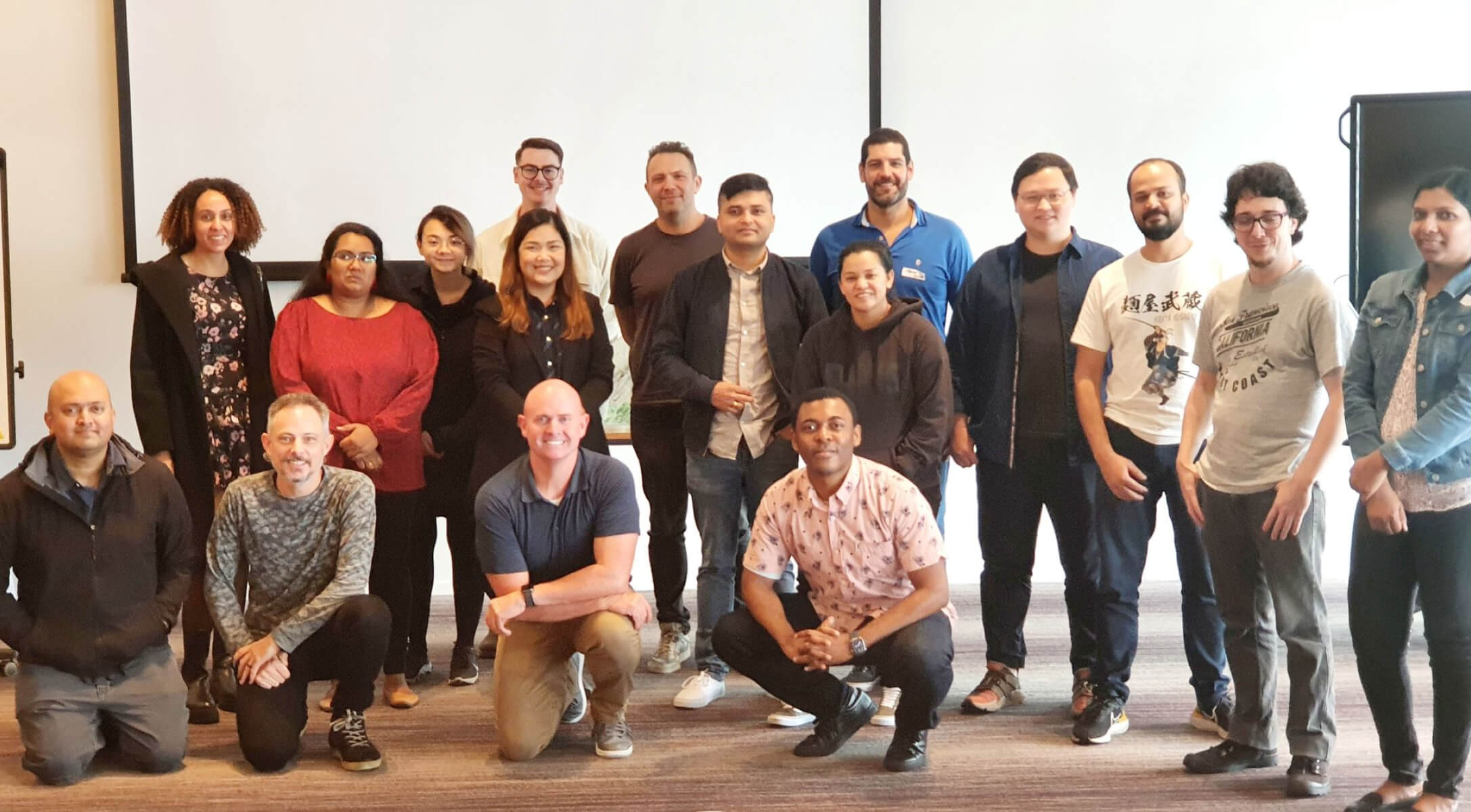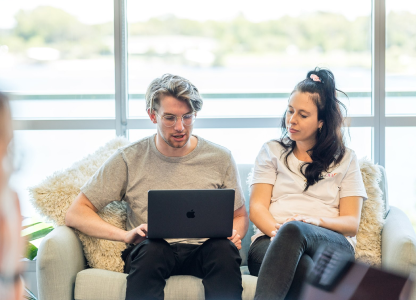My name is John Halls, I’m the GM of Engineering at Open and I make a lot of mistakes. My mantra about mistakes is simple, I’m open about making them because they’re great learning opportunities and highlight areas where we can improve.
That’s why I’m a big advocate for others making mistakes too. But I also know there’s a big factor in making sure people feel comfortable with doing so: working in a psychologically safe environment and knowing that no matter what happens, your team won’t punish or humiliate you for speaking up with ideas, questions or concerns.
When I started my role at Open in December 2021, I inherited an incredibly talented team. It became clear to me that Open was unique compared to the other places I had worked. I remember Jonathan, one of our co-founders telling me, “we wanted to create a company that people would be proud to work for.” As a new stater, I saw Open’s lived culture straight away. People genuinely enjoy what they do, team members went above and beyond to help each other out, and cross-functional teams worked collaboratively to solve complex problems.
While this was fantastic to see, I saw my first challenge: How was I going to grow the team while also scaling our culture? One that encouraged big ambitions and high performance, but ultimately rooted itself in being a psychologically safe workplace.
Here’s how we’ve started that process and where we’re at today.
A $31 million Series B raise that changed everything
Our Series B positioned us well for an incredible amount of growth – new markets, distribution partners, and opportunities to innovate our platform and products. But our then team of eight had more work than we could deliver.
The challenge was set, we needed to grow the team… and fast. Within a few weeks, we welcomed fourteen talented people into the team. It was exciting to see the company growing and it also meant almost everything needed to change – our systems and processes, methods of communication and project management to name a few.
We also knew we had to be intentional about shaping up our team culture. While we have ambitious goals that drive our team to work hard, it doesn’t mean people can’t have fun and enjoy what they’re doing. As we ask our team members to help us achieve our mission as a company, it’s also important for us to deliver value to our people and make sure they feel fulfilled by their work and the role they play in our team.
Like every other fast-growing, scale-up company, this period of growth is a formative time and one where we were forced to think about the culture we’re building and bringing to life.

The #1 ingredient for a high performing team: chemistry
This was a process we wanted to get right, and we reached out to The Culture Equation for support. Together, we designed a workshop for our team to unpack and outline the collective team culture we’d like to build. As experts who help companies write the unwritten rules when it comes to their culture, we knew we were in good hands.
Apart from the day being a culture-building workshop, a big goal of the day was getting everyone from our team together face-to-face. After spending months interacting virtually because of COVID, we wanted to get everyone together in person and flew people in from New Zealand and Melbourne. As a team that works closely day in and day out, it was important that we had an opportunity for team members to build great chemistry and camaraderie.
Because we’re focused on building high performing teams, we look closely at professional sports – a comparison that’s been made time and time again, but one that’s made for a reason. One common element that all successful sports teams have is incredible chemistry, no matter the sport. It’s the glue that enables excellent communication, role definition and the ability to hold each other accountable for performance.
Workshop outcomes: our team’s new social contract
Throughout the day, we worked together toward our main goal for the workshop: to build our team’s social contract and purpose. We created our rules of engagement and ways of working, Our dos and don’ts, and boundaries – all while focusing on creating a team where psychological safety was deeply embedded.

If you’re reading this, you’re probably a new team member or someone who’s hoping to join our team. True to our name – Open – and the fact we’re proud of being a transparent business, here’s the social contract we built together. It’s now one of our most important team artefacts. The contract covers how we communicate with each other. It covers how we hold each other accountable. But most importantly, it outlines how we help and support each other.
As a team, we’ve made a commitment to:
- Take accountability for our actions – we’re accountable for what we’ve done, but it’s also okay to make mistakes because they’re learning opportunities
- Recognise each other’s achievements
- Encourage positive feedback
- Support each other, be approachable and ready to help when needed
- Be open (pun intended, and true to our namesake) – being real and transparent
- Listen to each other – be present, attentive and get to know the tiny details your teammate is trying to share with you
- Be good at planning – having proper checkpoints and knowing where we are within the bigger picture
Those are all of the things we’ve committed to doing more of, but we also wanted to identify unwanted behaviours that aren’t welcome in our team. Having them written down in our contract makes us more aware of them and easier to prevent. As a team, we’ve made a commitment to avoid:
- Blame culture and finger-pointing – we embrace people owning up to their mistakes and being accountable for their actions because making mistakes is how we learn
- Non-inclusive behaviour – because no one likes feeling left out
- Holding back knowledge – this can be an issue for start-ups where key people believe they can continue to hold onto important information and be the sole expert. In fact, knowledge-sharing is a behaviour that makes someone a key player and decision-maker, and we encourage that. It’s important that everyone in the team becomes an expert
- Failing to provide context – this is is vital in decision making, it lets people understand how you’ve reached your decisions
But we can’t just expect our team members alone to live up to this contract, it’s also up to the leaders in our business to support our people. During our workshop, we were joined by our co-founders and Chief Executives, Jason and Jonathan, and we made a commitment as leaders too:
- To promote our psychologically safe environment
- To actively engage with those team members who fail to do so, and lastly,
- To continue to work with key stakeholders in the business to try and minimise projects and challenges that have impossible deadlines and targets
Making space for fun and games
Having a productive one day workshop doesn’t mean we didn’t have any time for a laugh or two (or three, or four). We ran the workshop from 10 am till 3 pm, stopping for social drinks at the end but we kept the level of energy high throughout the day through activities that were interactive and fun.
I discovered that one of our team members had never played paper, scissors, rock before. Cue our impromptu tournament where Software Engineer, Michael (wearing a pink shirt), battled it out with Jason, our co-founder. I’ll let you watch the video to find out who wins.
A new way forward
A month on from the workshop, I’m seeing important relationships really form and mature between our team, with a renewed sense of accountability and focus.
Sometimes, as leaders, we think that we’re always too busy to focus on team culture, let alone take a day out to have a workshop. But it’s absolutely vital to make the time. Establishing a team culture, agreeing and writing down our commitments is the first and most critical step of creating a high performing team. And I can’t wait to see where our team grows in the months to come.
We’re hiring at Open! From roles spanning Product & Platform, to Engineering and Partnerships, we’re looking for people who want to build the future of insurance with one of the world’s leading FinTech companies. Learn more ›



.png)